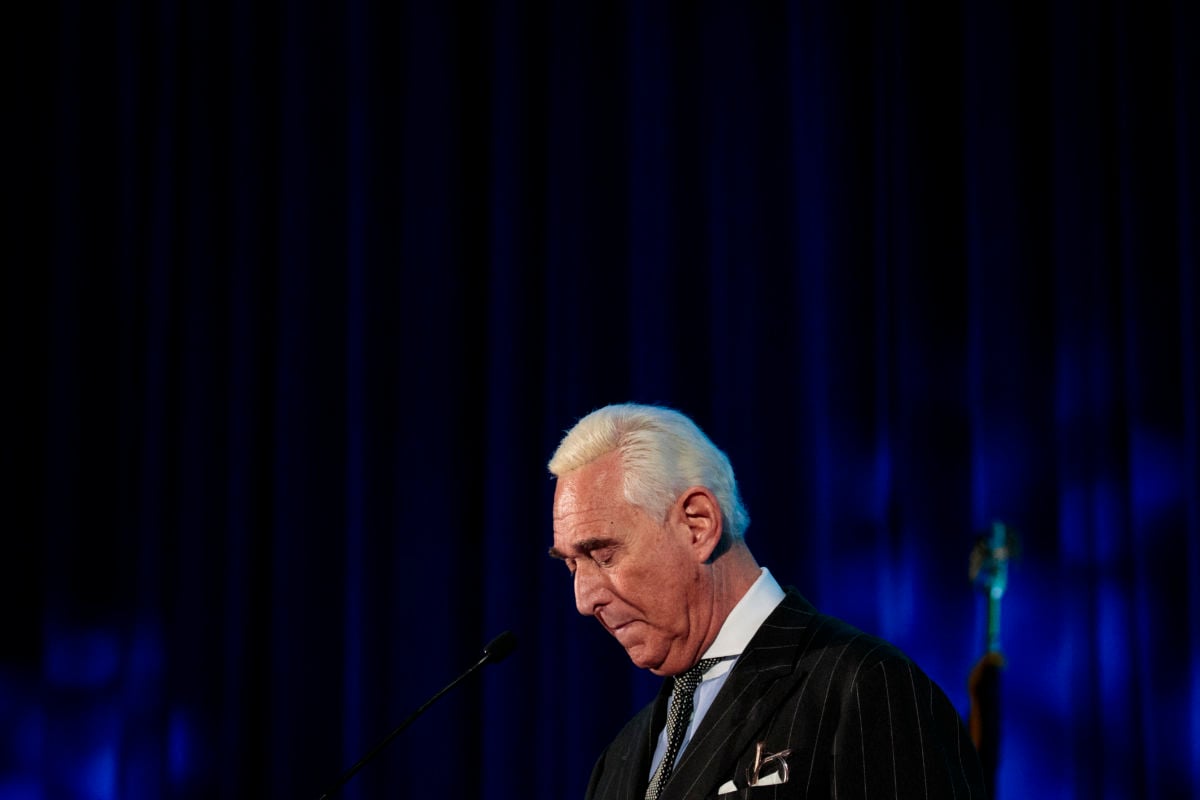Longtime Republican operative Roger Stone, a confidant of President Donald Trump, was arrested Friday morning by FBI agents wearing “tactical vests” and carrying “large weapons” at his home in Florida after being indicted by a federal grand jury on seven criminal charges stemming from special counsel Robert Mueller’s probe into alleged Russian interference in the 2016 elections.
According to the Associated Press:
Stone is charged in a seven-count indictment with witness tampering, obstruction, and false statements about his interactions related to the release by WikiLeaks of hacked emails during the 2016 presidential election. Some of those false statements were made to the House intelligence committee, according to the indictment.
The indictment brought by special counsel Robert Mueller does not accuse Stone of coordinating with the Russian government’s election interference in 2016, the key matter under investigation in the probe. But the indictment lays out in detail Stone’s conversations about stolen Democratic emails posted by WikiLeaks in the weeks before Trump beat his Democratic opponent, Hillary Clinton. Mueller’s office has said those emails, belonging to Clinton campaign chairman John Podesta, were hacked by Russian intelligence officers.
Stone was arrested by FBI agents at his Fort Lauderdale, Florida home before dawn on Friday, and he is expected to appear in federal court later Friday morning.
Prompting speculation that they were tipped off by the FBI, a CNN camera crew was waiting at Stone’s home in the early hours of Friday morning to film his arrest.
Watch:
CNN’s @davidgshortell was on the ground when Roger Stone was arrested in Ft. Lauderdale, Fla., this morning. He says he was monitoring the situation because of “unusual grand jury activity in Washington D.C. yesterday.” https://t.co/Ljjyb8zTVN pic.twitter.com/O5rSFqbOcZ
— New Day (@NewDay) January 25, 2019
Join us in defending the truth before it’s too late
The future of independent journalism is uncertain, and the consequences of losing it are too grave to ignore. To ensure Truthout remains safe, strong, and free, we need to raise $24,000 by the end of today. Every dollar raised goes directly toward the costs of producing news you can trust.
Please give what you can — because by supporting us with a tax-deductible donation, you’re not just preserving a source of news, you’re helping to safeguard what’s left of our democracy.
